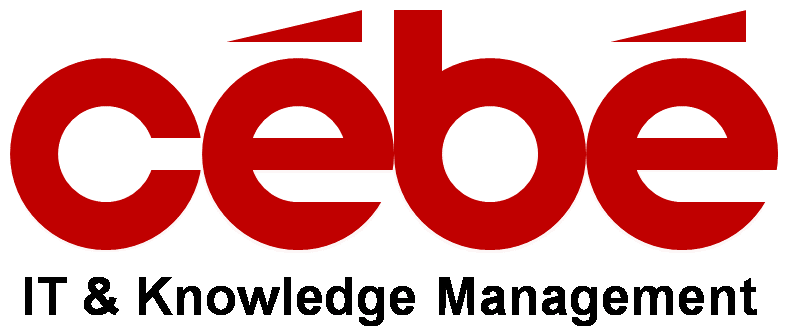
Consulting Services
- IT Strategy
- EA / SOA / BPM
- IT Innovation Briefings
- IT Due Diligence
- Vendor Selection
- Executive IT Seminars
- Cloud Computing
- Grid Computing
- Security Maturity
- Knowledge Strategy
- Technical Communities
- Knowledge Capture
- Enterprise Social Networking
Contact Us:
|
 |
|
|
Forward this newsletter to colleagues and friends: use the "forward email" link below at left, rather than "Forward" in your email software, to preserve your privacy, give the recipient more options (their own unsubscribe link, etc.) and to give us better click-through data from ConstantContact. Thanks!
|
|
|
 |
Save the Date: Cutter Summit, Oct. 25-27
|
The annual Cutter Consortium Summit, which brings together a few hundred industry leaders for three days of in-depth sessions with key IT and business management experts, will be held Oct. 25-27, 2010, in Cambridge, Mass. Registration is open at
www.cutter.com.
|
 |
IT to the Rescue
|
Several IT projects have seen applications to the relief effort in Haiti, following the devastating earthquake of January 12.
- A previously abandoned English-Creole translation program from Carnegie-Mellon University (CMU) was put back in service to translate phrases useful in triage situations and other aspects of relief efforts (details).
- The Haiti Family Reunification Web site from University of California Irvine (UCI) uses fuzzy search to help locate family members among tens of thousands of records (details).
- The Mid-American Geospatial Information Center (MAGIC) at UT-Austin has been providing satellite and aerial imagery to field teams (details).
- Crisis Commons runs multiple "crowdsourcing" projects to deliver useful information to Haitians and aid workers. It delivers English-to-Creole translations on iPhone or Android, assembles updated maps of Haiti, matches donors with needs using a Craigslist-like service, and more. All 20 projects are listed here, and several can use volunteers located anywhere.
|
 |
When You Can't Sell It, Give It Away?
|
The New York Times
reports that Microsoft and the U.S. National Science Foundation (NSF) have agreed to give researchers "free" access to Microsoft's Azure cloud computing environment (there are quotes around "free" because researchers will actually pay for the resource, but using grant money from NSF). Microsoft said that "we're trying to figure out how to engage the majority of scientists." Let's hope the person who wrote this is not in Marketing. Hello Redmond, we have a problem...
|
 |
Oil Companies Targeted by Cyberspies?
|
A
January 25 article in the Christian Science Monitor talks about alleged cyberspying against oil companies Marathon Oil, ExxonMobil and ConocoPhillips. There was nothing new in the attack methods, but the suspected involvement of a foreign government is what made the events, which of course are not officially confirmed by the alleged victims, noteworthy.
|
 |
A Trillion Nanosensors
|
About six years ago, research on ad-hoc wireless networks of tiny sensors was all the rage, leading to the "smart dust" moniker. Since then, things have been very silent on this front. One reason may be the normal hype-and-disillusionment cycle, another that the sensors' cost and size needed to come down by several orders of magnitude, which takes time, and finally, once the basic science of sensor networking was established, researchers went off to solve other problems. The "
Central Nervous System for the Earth" (CeNSE) is a renewed effort by HP Labs in this direction. It envisions up to a trillion sensors, each the size of a pushpin, embedded into roads, buildings, equipment, etc.
|
 |
Seen Recently...
|
"The ultimate outcome of Enterprise Architecture is change-friendly capability delivery."
--
Brenda Michelson, Elemental Links, edited from Twitter
"I think business process optimization or transformation is the next big thing. It's way bigger than process."
-- Connie Moore, Forrester Research, via Twitter
|
|
| |
|